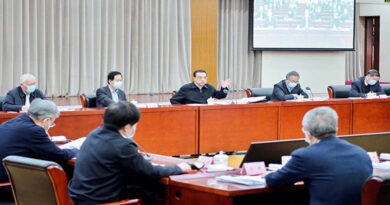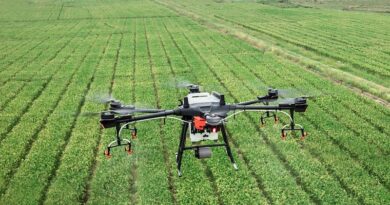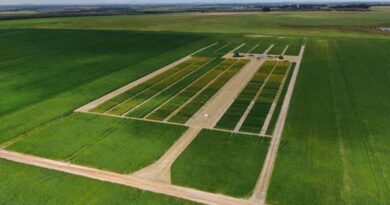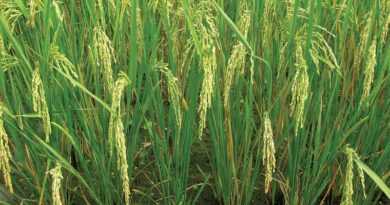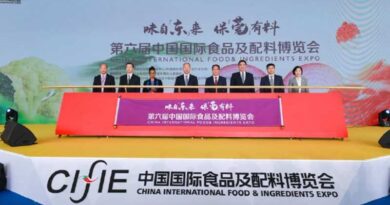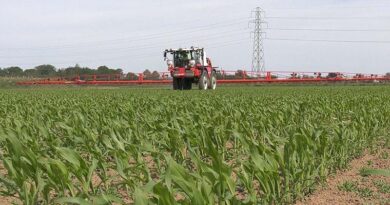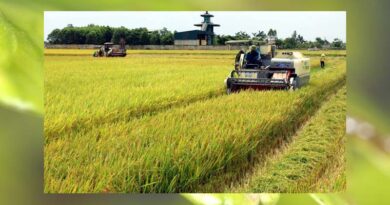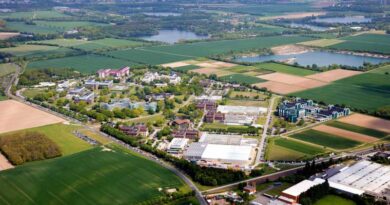China to take further steps for spring farming, ensure and increase energy supply
21 April 2022, China: China will adopt measures for sound agricultural production in the spring to ensure a bumper harvest and stable supply of major agricultural products, according to a decision made at the State Council’s executive meeting chaired by Premier Li Keqiang on April 20.
The meeting pointed out that job security and price stability are both key underpinnings for keeping major economic indicators within an appropriate range.
The stable production and supply of grains and other important agricultural products serve as an anchor for overall economic and social stability, especially for keeping consumer prices stable and ensuring people’s essential needs. This is particularly important given the growing uncertainties in the international food market and high inflation in some countries.
“We must pay great attention to agricultural production now, and keep up with the farming schedule. China enjoys sufficient provision and reserve of grains, and spring sowing this year is steadily advancing. Food security can be guaranteed.” Premier Li said.
“All localities must strictly fulfill their responsibilities for food security. The coordinated progress of COVID-19 response and spring agricultural production will be an important part of performance assessment,” he said.
According to the Premier, special task forces will be set up to coordinate the efforts for agricultural production in the spring, sufficient provision and stable prices of agricultural supplies, and marketing of agricultural products.
The full-year targets of grain acreage and output will be broken down, and localities are urged to carry out spring sowing in full and during the optimum time and leave no farmland uncultivated. Those who fail to complete assigned tasks will be held accountable.
The primary role of new types of agribusiness will be brought into play, to provide such services as third-party cultivation and help small household farmers and those affected by COVID-19 farm their land.
Concrete efforts must be made to ensure sound spring plowing and other agricultural activities. Well-calibrated steps will be taken to organize and guide the activities. To keep up with the farming schedule, work will be done to help migrant farmers return home for farming, facilitate the availability of agricultural supplies in rural areas, ensure the passage of agricultural machinery and make the services of agricultural technicians more accessible to farmers.
The policy of “green lane” service for the transportation of fresh farm produce will be implemented to facilitate smooth circulation of vegetables and other agricultural products.
Policies to support and benefit farmers will be effectively implemented. Funds for assisting grain production will be delivered to farmers as quickly as possible.
Measures will be explored to increase agricultural supplies subsidies, and grains procurement as necessary will be conducted in a timely manner to keep grain-growers motivated.
The meeting also identified policy steps to ensure and increase energy supply, and continue to optimize the energy mix, to expand effective investment and job creation, and enhance the capacity of energy in driving economic and social development.
The meeting pointed out that energy is the fundamental underpinning of economic and social development. It is essential to address the new challenges of the external environment based on China’s own national conditions, and strengthen energy supply with well-defined priorities. It is important to plan ahead and stay prepared, take forward energy projects with ripe conditions that meet development needs.
“Energy is a matter of critical importance. We must plan ahead and stay prepared, and be self-reliant in ensuring energy security,” Premier Li said.
The meeting decided that the role of coal as the primary energy source should be harnessed. Concerted efforts must be made to fine-tune the review and approval policies regarding the production, project construction and other activities of coal enterprises. Sub-national governments must earnestly fulfill their responsibilities for stable production and provision, and advanced production capacity should be fully unlocked.
The country will strive to increase coal production capacity by 300 million tons this year by approving higher production capacity, expanding output and putting new projects into operation.
Clean and efficient use of coal will be promoted, and construction of reserve facilities intensified. Market-oriented and law-based approaches will be applied to guide coal prices toward running within an appropriate range.
Efforts will be made to renovate coal-fired power plants to conserve resources, reduce carbon emissions, make operations more flexible and upgrade heating facilities, with the aim of raising energy efficiency and transforming more than 220 million kilowatts of coal-fired power capacity this year.
Such renovation should be conducted during routine repair and maintenance of power generation units, to avoid disrupting stable power supply. Financial policies in support of the renovation of coal-fired power units will be earnestly implemented.
Nuclear power will be developed in a well-paced manner on the premise of ensuring absolute security and exercising strict oversight. With years of preparations and comprehensive assessment and review, approval is granted for the projects of new nuclear power units identified in the national plan in Sanmen of Zhejiang province, Haiyang of Shandong province and Lufeng of Guangdong province.
Also Read: India targets 3,280 lakh tonnes food grain production in 2022-23
“We must fully unleash the production capacity of quality coal. Government departments across the country should provide full support,” Premier Li said. “We must ensure the absolute security of nuclear power. Regulations in this regard should be effectively enforced.”


